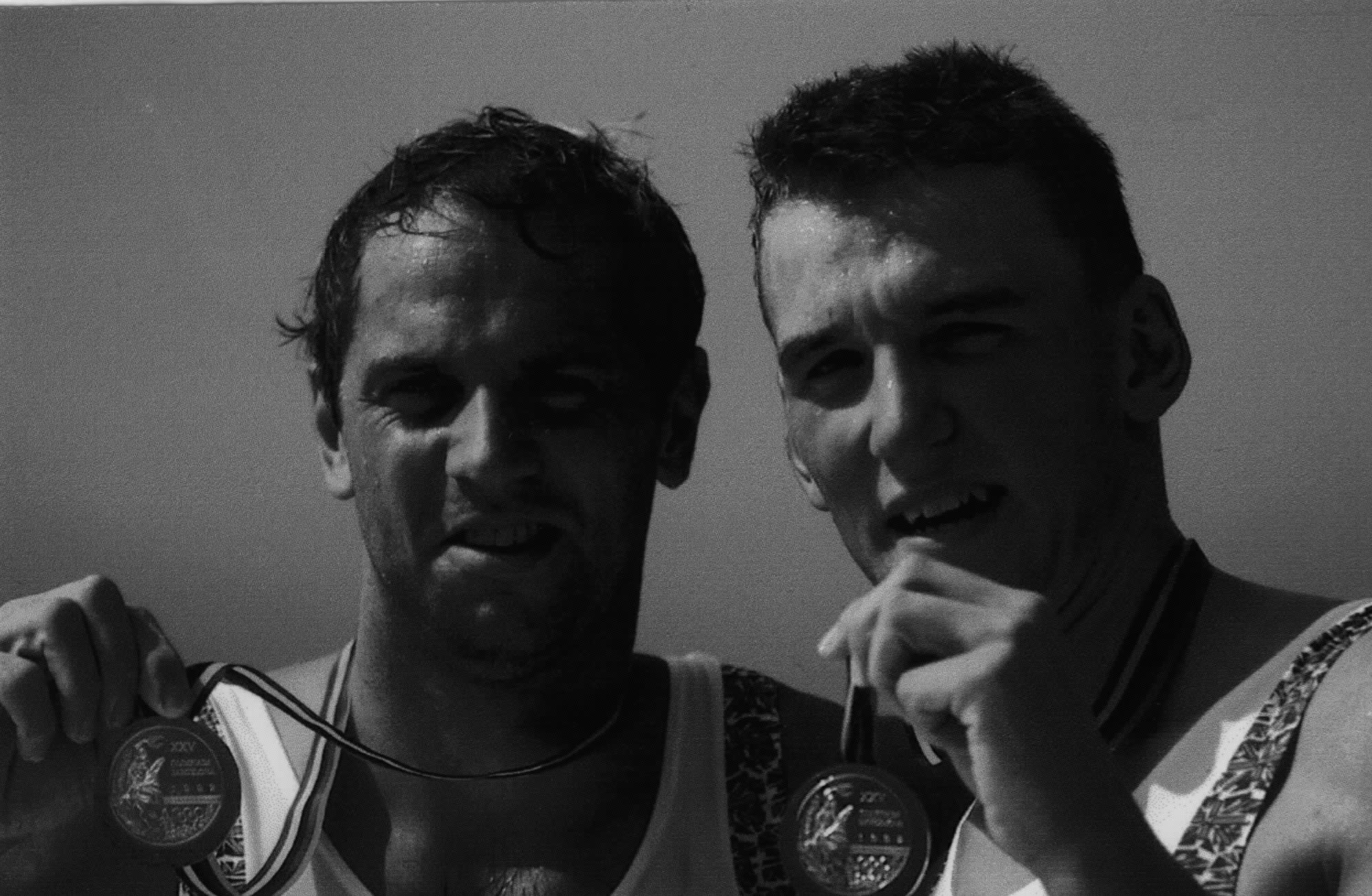 The 1992 Olympic Games
The 1992 Olympic Games  The 1992 Olympic Games
The 1992 Olympic Games  The nerves for the racing start early at the Olympics, and seem to come in
waves. At one moment you can be very relaxed and cool and then suddenly a stray
comment or sight of the opposition can bring on butterflies and even
nausea. You just get used to ignoring your body for a change. Under pressure it
tells you that you're ill, thirsty or tired when your head tells you the
opposite. I became practised at reassuring myself that the feelings go hand in
hand with racing, and seven years later I go through the same process. You need
nerves to get the best out of yourself, but let them get on top of you and
successes will be few and far between. We had our warm-up patterns set by this
stage and we grew used to them being changed on race days. When you're nervous
a half hour routine can take twenty minutes so we practised taking them much
slower and spending a few minutes paddling between the pieces.
The nerves for the racing start early at the Olympics, and seem to come in
waves. At one moment you can be very relaxed and cool and then suddenly a stray
comment or sight of the opposition can bring on butterflies and even
nausea. You just get used to ignoring your body for a change. Under pressure it
tells you that you're ill, thirsty or tired when your head tells you the
opposite. I became practised at reassuring myself that the feelings go hand in
hand with racing, and seven years later I go through the same process. You need
nerves to get the best out of yourself, but let them get on top of you and
successes will be few and far between. We had our warm-up patterns set by this
stage and we grew used to them being changed on race days. When you're nervous
a half hour routine can take twenty minutes so we practised taking them much
slower and spending a few minutes paddling between the pieces.
The last few hours running up to the final were a battle more with yourself than anything. The routine of practise paddle, breakfast, and rest has been settled days before, along with time for each; but it becomes next to impossible to concentrate when you know that before the sun sets, four years of training will be decided by one race. We knew our opposition inside out, we had raced and beaten them so often that we knew if we rowed well we could win. It sounded simple a few weeks before, but with a few minutes to go it didn't seem so easy any more. Our coach, Jurgen Grobler, sent us out for the final almost without any chat at all, but just as he pushed us away from the stage he nodded directly at me and murmured `I'm sure we win, Matt'.
Photo: Steven Redgrave and Matthew
Pinsent, after receiving their gold medals for men's coxless pairs at
the 1992 Olympics in Barcelona. Photo c.Peter Spurrier.